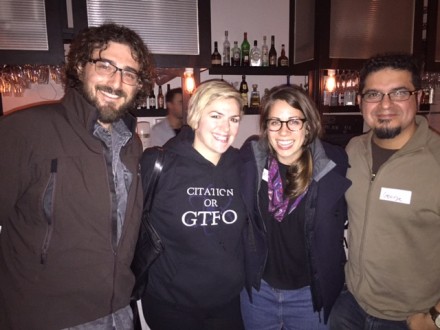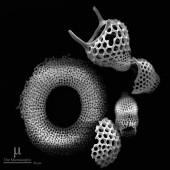ASC—its future
- Conference! Brisbane, 11 March 2016
- We are focused on serving members better
- Fees to rise following epic audit
Executive Summary
Australian Science Communicators is the national forum for science communicators and science journalists. We are independent from government and run by members, for members.
Going forwards, our mission is to:
- Better support our national network of science communicators and science journalists by providing professional development and networking opportunities;
- Increase our direct support for branches and members located in both metropolitan and regional areas; and
- Strengthen partnerships and relationships with our corporate members, partner organisations and key stakeholders.
In recent times, volunteer-driven associations like the ASC have come under pressure from growing operating costs and a greater need for regulatory compliance. Some have failed to overcome these challenges and have ceased to exist.
For this reason, throughout the past year we have invested a lot of time and effort into ensuring our finances and regulatory compliance are robust and up to date. Recently, this process came to an end and we have been given a clean bill of health after a professional audit and bookkeeping services.
Free of risk and uncertainty in these areas, the association has a strong platform on which to grow, but we do have some challenges to overcome.
This month the ASC executive, along with nominated representatives from state branches, met in Canberra for a special general meeting, a 2-day strategy meeting and our 2015 AGM. During these discussions we scrutinised the ASC’s operations, reworked the constitution and developed a strong plan for the future. I thank the branch and committee representatives for their time and energy in helping define the future of ASC.
- We now have a legal constitution – over the years and in response to all kinds of issues, the constitution had been ‘tinkered with’, with parts added and removed. Unfortunately, because of the shape it was in, our not-for-profit status was very much at risk. Thanks to Toss Gascoigne for his time in helping us craft a compliant constitution and lodging it.
- We have had a robust audit of the ASC finances (18 months in the doing). We’ve updated our processes and identified areas where we need to change or even eliminate suppliers and services. Importantly, we now know where we stand financially and at this month’s AGM were able to present the financials and show that the ASC cannot survive based on its current membership dues. Thank you to Pete Wheeler, our treasurer, and Kali Madden, our executive officer, for getting ASC in a much better place after a white-knuckle ride.
- The strategy meeting was incredibly useful for talking about what members want and how, as a volunteer organisation, we can deliver that. Here were the key discussions and outcomes:
- Networking. The ASC is a valuable network of communication professionals, academics, freelancers, students, and journalists. We want to better support the network and bolster the channels through which we communicate as a network. ASC has one of the best mailing lists (as in listserve) in the science engagement world. Through it our members announce events, job opportunities and occasionally have heated discussions. We also have a Facebook group, individual Facebook pages, and 2 LinkedIn groups (one public, one private). Then there’s the ASC website which supports members and we’re also currently hosting various other sites with premier content that our members want (sciencengage, no funny business etc.). These activities all have associated costs for which we now need to budget.
- Conference. We’ll be holding our next conference in 2016 on March 11 at QUT’s fabulous ROOM360 (for the views it has over Brisbane) during the World Festival of Science. The conference is an extremely valuable networking and professional development activity, but it is volunteer driven and like any national conference has significant costs involved to make it happen.
- Professional Development. In the past year we have initiated a professional development grants program that has already generated benefits for members around the country. We want to expand this, and again it requires time, energy and some funding to make that possible.
- Webinars. ASC has the capacity to host web based events on topics of interest to our members. As part of our commitment to delivering benefits to members wherever they may be, we will be rolling out 6 of these across 2016.
However, our finances reveal that the ASC has been operating at a loss for some years, propped up by extraordinary and unsustainable volunteerism generating some profit from conferences. We cannot continue to do this—it undervalues the ASC and the important work that our members do. This means the cost of membership needs to increase for the ASC to be a viable association that can actually support branches and members. We are still committed to our non-profit status, but it is illegal for non-profits to operate at a loss. We need to be sustainable and set the membership fee at a sustainable level. So, as of 1 January 2016 the new membership fee will be $185.00 for members, $85.00 for students and associates. We will honour current rates until then.
We appreciate that some members will be disappointed by an increase in their membership fees. But at this critical time for the ASC, we hope that the majority of members will choose to show their support by renewing their memberships and in so doing, help us to build a better, more sustainable and professional association that can deliver greater outcomes for professional science communicators and science journalists throughout the country. Of course, we would like to be thoughtful about our approach and we invite comment from members by emailing members@asc.asn.au.
Thanks to all for your ongoing support.
Professor Joan Leach
ASC President


